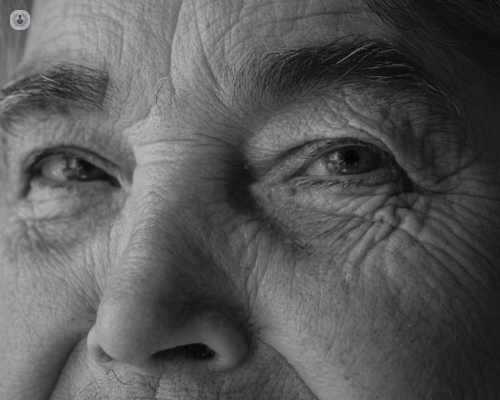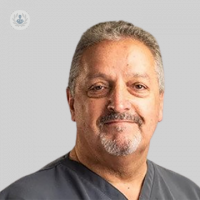All you need to know about surgical treatment for glaucoma
Written by:In this article here, Professor Philip Bloom, a highly revered consultant ophthalmologist, details what glaucoma is, and explains how the surgical procedure often performed to treat glaucoma is carried out.

What is glaucoma, and what are the symptoms?
Glaucoma is the name given to a group of diseases, all of which affect the optic nerve. There are often very few symptoms, which is why it is so important to get your eyes checked. The majority of patients won’t experience any symptoms until glaucoma is at a rather advanced stage. Occasionally, when the eye pressure is very high, patients with glaucoma may notice symptoms such as eye ache, blurred vision, and haloes around lights.
What treatments are available for glaucoma?
We start with a simple laser treatment, which avoids the need for eye drops. These treatments can be combined in patients who require this. If neither treatment is successful, there are various surgical procedures.
What advantages does MIGS have over other treatments?
MIGS stands for minimally invasive glaucoma surgery, and the advantages revolve around how minimally invasive it is. It is often performed at the same time as cataract surgery. In patients in whom we are not performing cataract surgery, the incision made is extremely small. The need for observation after this surgery is minimal.
What does the MIGS procedure entail?
The MIGS devices are inserted through the tiny cataract wound. Local anaesthetic is applied through drops. The operation is completely painless, and the vision recovers very quickly. The operation lasts roughly 20 minutes when performed at the same time as cataract surgery.
How successful is MIGS?
It is hugely successful. It is very effective and safe.
What is the recovery period like?
Recovery from MIGS is normally very swift. Sometimes, patients will experience blurred vision for only a day or two after the operation. The drops are typically applied four or five times a day for about a week after surgery.
To schedule an appointment with Professor Philip Bloom, you can head on over to his Top Doctors profile today.


